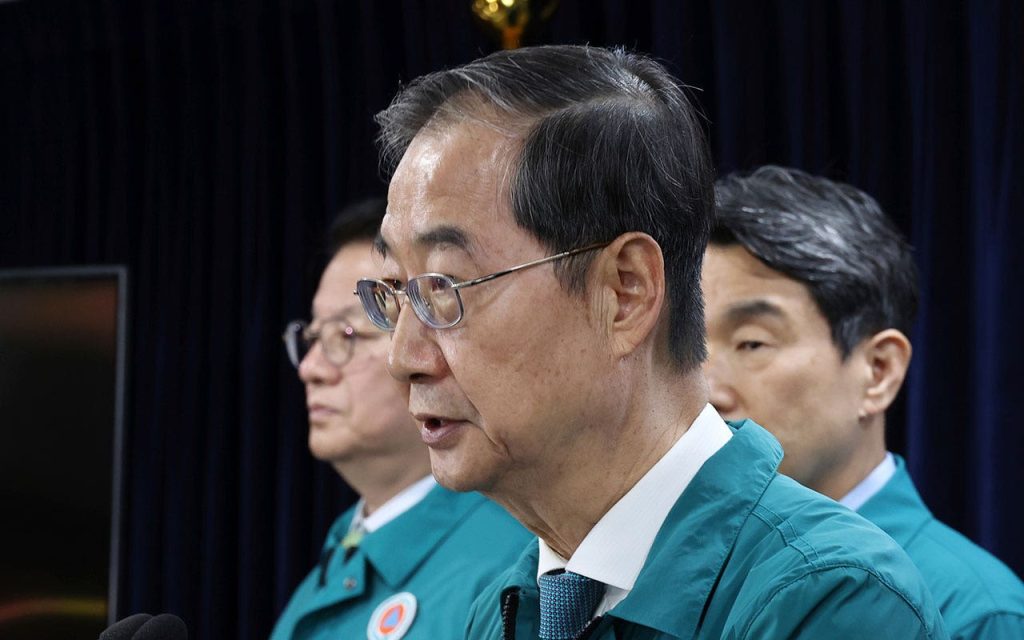The South Korean government has decided to delay plans to increase medical school admissions in response to a weeks-long doctor strike that began in February. The strike was sparked by a proposal to recruit 2,000 more students, raising concerns about the quality of medical education in the country. In an effort to end the strike, a compromise proposal from the presidents of six state-run universities was adopted, which involves a gradual increase in admissions over several years. This decision comes as more than 90% of the country’s 13,000 medical interns and residents have been on strike, putting a strain on hospitals.
Doctors’ groups have expressed concerns that a steep increase in students would overwhelm universities and compromise the quality of medical services in South Korea. However, government officials argue that the country is in need of more doctors to address the needs of a fast-aging population. Prime Minister Han Duck-soo announced the compromise proposal, which allows medical schools to temporarily lower their quotas for new places by up to 50% of the government’s target for 2025. This would mean that the number of new places could be closer to 1,000 rather than 2,000. The schools will be required to finalize plans to increase admissions by the full 2,000 by 2026.
The government stressed that the compromise is temporary and urged striking doctors to return to work and engage in negotiations. The prolonged strike has been putting a strain on hospitals and causing concerns about healthcare services in the country. Han emphasized the need for bold decisions to address the demands of patients and the public. Doctors’ groups have called for the government to completely scrap the plan to increase admissions, highlighting the ongoing tensions between healthcare providers and the government. The government’s decision to delay the plan reflects a desire to find a balance between addressing the needs of patients and medical providers, while also ensuring the quality of medical education in the country.
The compromise proposal to slow down the increase in medical school admissions will likely have far-reaching implications for the future of healthcare in South Korea. The decision to delay the plan is a temporary measure to address the strike by doctors, but the government has emphasized the importance of increasing the number of doctors in the country to meet the needs of an aging population. The ongoing negotiations between the government and doctors’ groups highlight the complexities of balancing the demands of different stakeholders in the healthcare system. As South Korea grapples with these challenges, finding a long-term solution that addresses the concerns of both medical providers and patients will be crucial in ensuring the sustainability and quality of healthcare services in the country.


